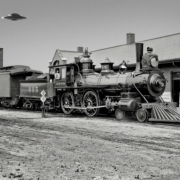Why Do Complex Programmes Like HS2 Always Overspend – Conspiracy or Cock-up?
I was interviewed about my new Bad Buying book by Jeremy Vine on his UK Radio 2 BBC show last week – over 7 million listeners apparently. He seemed to have read at least some of the book which was surprising and pleasing, and said it was a “fascinating book … I haven’t read a book like it before”. Which you could interpret in a number of ways!
During the interview, the positioning from Vine was about governments wasting money, which was not my choice really in term of emphasis. I believe private sector firms probably waste just as much money through bad buying (procurement) as public sector organisations. But it is not as visible, because there is no UK National Audit Office (or their equivalent in other countries) to keep an eye on private firms. And of course the private sector is only wasting shareholders cash, not that funding provided by every citizen via their taxes.
One issue we got onto during the interview was why major projects always seem to run way over budget. HS2 is a good example. Some £30 billion was the initial budget – we’re now at around £100 billion and I’ll be pleasantly surprised if we come in at even that amount. But why does this happen?
One of the callers to the show identified a key issue. “If we’d known it was £100 billion from the start, HS2 would never have been approved,” he said. Another example is the Scottish Parliament building which amazingly went from initial estimates of around £40 million to a final cost of £414 million! The eventual report into this said, “The figure of between £40 and £50 million originally put before the Scottish public was never going to be sufficient to secure the construction of a new Parliament building of original and innovative design”.
My feeling is that there is little incentive for key stakeholders to be honest about costs at the early stages of major construction, technology or other programmes. The supply side wants the programme to be approved as they will benefit. On the buy-side, lots of civil servants, consultants and interim managers see a gravy train going on for years, maybe for the rest of their careers (in the case of something as mega as HS2).
The politicians want their vanity project to go ahead, knowing that when the chickens come home to roost and the overspends become public, they will have long gone to lucrative private sector jobs or the House of Lords. (I’m sure some Scottish politicians just wanted a prize-winning new building, whatever the cost). So most of the key stakeholders are likely to underplay the potential costs, and overstate the benefits too (the HS2 business case is largely a work of fiction).
It is not just the UK that is vulnerable to this either. In 2019, Jean Nouvel, a celebrated French architect, started criminal action against the owners of the Philharmonie de Paris, the new concert hall he designed. He claimed fraud, embezzlement and favouritism, all in response to a 2017 claim by the owners as well as city and local government against him for payment of €170 million in damages for budget excesses and delays in the construction.
He was contracted to build the auditorium in 2007 for €119 million, but the final cost was estimated at €328 by the owners and €534 million by the regional state auditors (which in itself seems like a big discrepancy).
Le Monde reported Nouvel saying that the €119 million was quoted purely to match the ceiling set for the public tender, and was not really a genuine cost estimate. He claims that €100,000 per seat was the established cost for similar concert halls, and the €119 million total would have required spending only half that much, so it was never realistic. He also claims that everyone knew that the real cost would be much higher – “this is pretty usual in France in public tenders for cultural projects”, he was quoted as saying.
So in cases like this, do buyers really know the supplier isn’t to be believed, but everyone conspires to make sure the programme goes ahead? I’m sure this happen in defence projects, where the buy- side and sell-side are very cosy members of the same industry, and every major purchase seems to lead to a huge cost overrun.
The problem is, I’m not quite sure what we can do about this. Maybe more scrutiny up front, from NAO, the media, or opposition political parties? Or a “citizens convention” to review major spending ideas and bring a note of cynicism to the optimistic projections? Or perhaps we will just keep spending a fortune, then wondering after the event how on earth it all happened. Again.








Leave a Reply
Want to join the discussion?Feel free to contribute!